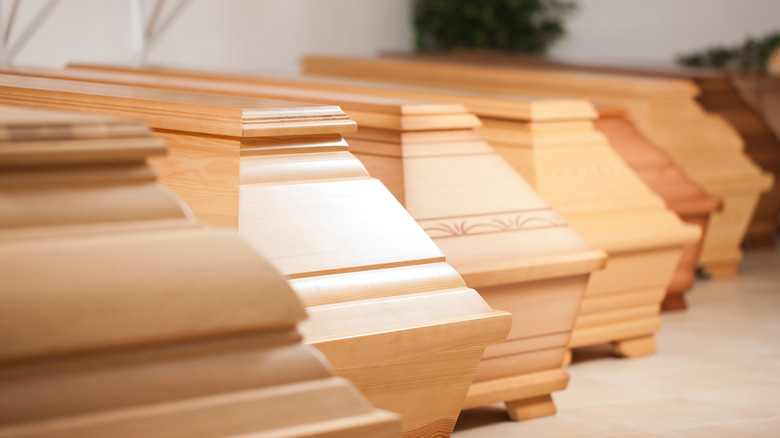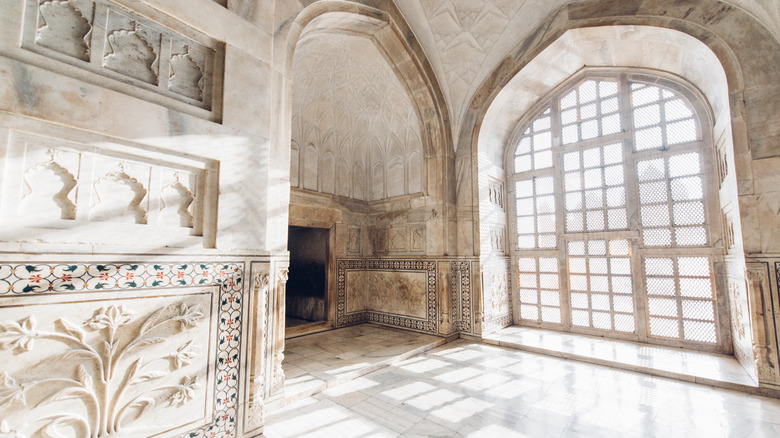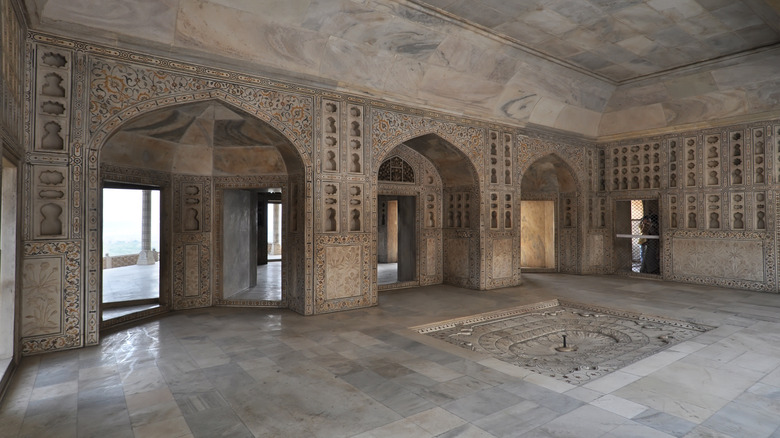How Do Bodies Decompose In Mausoleums?
All dead bodies go through decomposition. It may sound horrid, but actually, decomposition is a natural process that simply means a corpse will begin to break down until it has completely decomposed. Burying someone in a mausoleum isn't that different from a regular burial, but the body will decompose differently. This is partly because putting a body to rest in a mausoleum means it is above ground rather than below.
The body goes through natural stages of decomposition once it has died. According to Insider, it will take almost a century for a corpse to completely decompose in a grave, though it will start to show signs of breaking down immediately after death. About 50 years in, a body will typically become completely mummified due to the absence of tissue, and your bones will be the next to go 80 years in. However, when buried in a mausoleum, a body could take longer to decompose.
The amount of time it takes for a body to decompose inside a mausoleum depends on specific conditions. Per Casket Questions, the three biggest variables are the type of casket, the temperature of the mausoleum and surrounding area, and the type of embalming used for the body. Here's how it works.
The body needs to breathe
Per Casket Questions, the type of casket used to house the body will affect the decomposition process. Caskets that remain unsealed and are constructed using porous wood offer better ventilation. They also offer a more positive outcome — the body eventually turns into a mummy. If the casket is sealed, there's an increased risk of the body decaying into a skeleton instead of a mummy. Additionally, funeral directors generally do not recommend putting a sealed casket in a mausoleum due to the lack of airflow, which can cause the decomposition liquids to leak at best — and an exploding casket at worst.
If you've never heard of an exploding casket, it's when the gases from a decomposing body have nowhere to go in a sealed casket and eventually cause the lid to pop off and even crack the mausoleum panel open, creating a not-so-nice mess to clean up. On her "Ask a Mortician" series, mortician Caitlin Doughty explained, "You really want a decomposing body to have access to some sort of air so it can then dehydrate. But if it's one of those super sealed protective caskets, there's really no place for all of that gas and fluid to go and so the body can kind of turn into sort of a bog."
Higher temperatures typically mean faster decomposition
Temperature is another factor that can cause a body to decompose faster. A body laid to rest in a mausoleum located in a cold climate will decompose at a slower rate than one in a warm, humid area. This is because heat quickens the decomposition process, turning the inner tissue of the body into liquid more quickly. Bear in mind that this is separate from an area with dry heat: The Guardian suggests this environment can actually mummify the body.
Of course, bodies smell as they decompose, and a body that's decomposing faster due to the temperature will start to smell worse quicker than a body in a temperature-maintained mausoleum. When the body does reach the stage where it starts to leak liquids, mausoleums have tilted floors that prevent liquid from congregating around the casket, funneling it toward the built-in drainage area.
Embalming is required by some mausoleums
Embalming a body slows the process of decomposition, but it will not stop it altogether. After all, decomposition cannot be stopped — only delayed. For friends and family, embalming can offer a sense of peace and closure, as it can make a dead body appear less obviously dead by stopping the initial stages of decay. Some graveyards and funeral homes require that a body be embalmed before it is placed in a mausoleum. This could be because mausoleums are located above ground, meaning that the odors of a decomposing body have the possibility to be more obvious — especially if the mausoleum is not well-ventilated.
Of course, odors are inevitable at some point, and though mausoleums typically don't smell like decay thanks to processes like embalming, the deeper you go, the more likely you are to smell the sweet stench of death.



